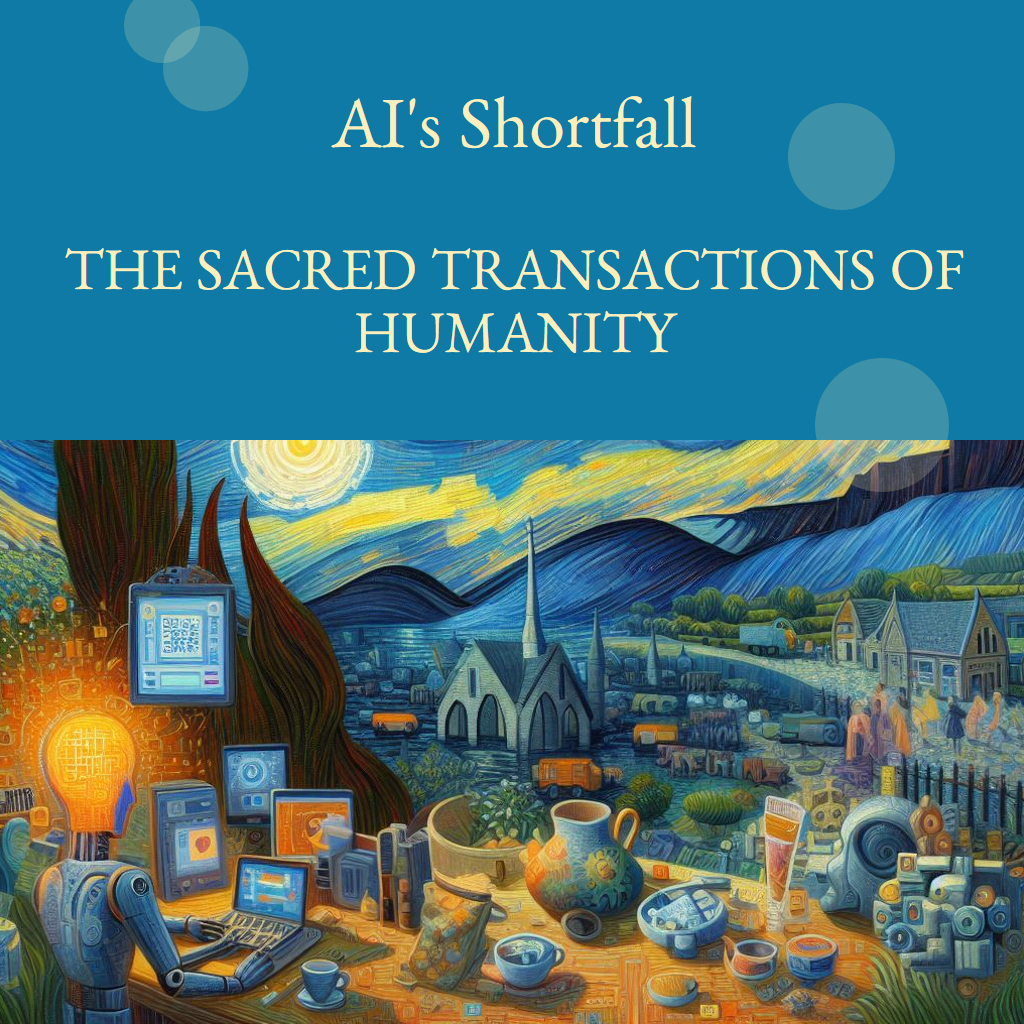Can the AI understand that some things cannot be bought or sold?
If you want something done, you give someone cash to do it. That’s really how it goes almost everywhere. As they say, it’s just the price is right.
That is simply a secular transaction.
In a secular transaction, both parties regard the transaction to be favorable, and therefore the transaction occurs. If the price is too high, demand will not be fulfilled. If the price is too low, supply will not commit to this transaction.
Consider the daily tragedy where Palestinians bury their children with a deep, pained acceptance that might seem incomprehensible to many.
The undeniable torment of watching your son or daughter caught in deadly conflict is, for many, unthinkable. Yet the acceptance of such heart-wrenching fate makes one ponder deeper.
It provokes questions about the underlying values and principles at play. There seems to be a belief in something larger than life on earth, something that transcends our ordinary understanding. And that’s a sacred transaction.
A sacred transaction, it’s not a numerically calculated transaction, it’s the intrinsic values and beliefs that drive the transaction. It might be a presumed transaction between the believer and the Omnipotent God.
Between the sacred transactions and the secular lies the principle-based transactions.
You cannot put a price on religion, love, parenthood, friendship, and family. Usually, it’s not possible. Although some people may get the price right.
These are principle-based transactions.
What we consider utterly important in our lives and live by their values are not sacred. A sacred entity is usually shared by a group of people and carries a historical connection to a text, time, person, and/or place.
Such a spectrum of secular, principles-based, and sacred is quite a unique trait for humans.
The problem with AI is that it cannot understand the meaning of sacredness and principle-based transactions. It may grasp the statistical relation between the words that come together when discussing sacred issues, however, it will never grasp the why or understand the intrinsic motivators for human behaviors.
To the conservatives in America, the Bible and Constitution might be considered sacred. The traditional idea of a family, the church, and an unborn baby’s life.
It’s interesting how conservatives across the globe assign similar levels of sacredness to similar objects, adjusted for their unique cultural contexts.
Nationalists everywhere regard the nation’s flag, the anthem, and the military as sacred.
Muslims consider the text the Quraan, the person – Prophet Muhammad, the cities Mecca, Madinah, and the Quds as sacred cities.
Sacredness can take different viewpoints according to different cultures.
Luther Standing Bear (1868–1939), a significant figure renowned for his journey from being a chief’s son to a Hollywood actor and stuntman, spoke profoundly about the sacredness of nature.
“Only to the white man was nature a wilderness, and only to him was it ‘infested’ with ‘wild’ animals and ‘savage’ people. To us it was tame. Earth was bountiful and we were surrounded with the blessings of the Great Mystery.”
You might think that we are living in the age of capitalism, the secular meaning of everything, and the death of the sacredness.
However, sociological theories on globalization suggest that as the world becomes more interdependent, there’s an increase in self-awareness related to civilization, society, and ethnicity.
The resurgence of religious practices, or “the return to the sacred,” is a reaction to people’s perception of the world as a unified entity.
On a personal level, I find the Quraan, Prophet Muhammad, and the holy Islamic cities sacred.
The concept of sacredness is quite fascinating to me when thinking about what makes us human.
Watching the AI generating words on white digital docs, I cannot see any threat to humanity whose sacred texts, persons, places, and historical moments are engraved deeply in its culture.
Some things cannot be bought or sold, even if the devils try to make a deal with them as we see repeatedly in the American movies describing how humans sell their souls in return for money, women, and fame.
Ahmed
Cairo, Egypt with love ❤️
Let’s connect on X
Want to read more?
Subscribe to the Life & Work Newsletter, and every Friday, read one thought-provoking idea about human behavior.
References:
https://every.to/p/are-you-selling-the-secular-or-sacred
Huntington, S. P. (2011). The clash of civilizations and the remaking of world order. Simon & Schuster
Wilson, R. (2023). Soul Boom: Why We Need a Spiritual Revolution. Hachette Books
